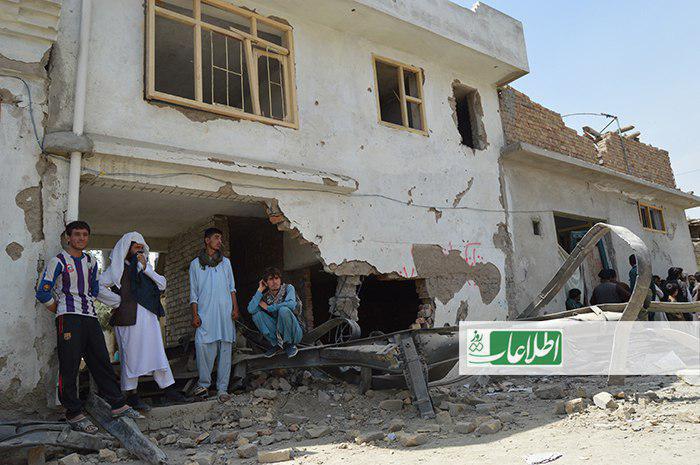Abul Rahman had poured himself a cup of tea, and switched on TV to watch a nationally televised interview of American peace envoy Zalmay Khalilzad on peace talks with the Taliban. The entire family of Abdul Rahman gathered to learn about the latest development on ending 18-year long insurgency in the country.
As Khalilzad was briefing about U.S. and Taliban agreement “in principle”, the house of Abul Rahman collapsed down. It was a car bomb that hit his house and wounded seven members of his family including his wife, two daughters and three sons.
Abul Rahman had the misfortune of living close to the Green Village, a compound in the eastern Kabul neighborhood where international NGOs and charities are located. It was the second time his house was hit by bombing that targeted the compound.
As the compound has been repeatedly targeted, residents were enraged and staged a protested on Tuesday morning, demanding the compound to be relocated somewhere else. The protest turned violent and reportedly seven of protestors were wounded.
Ahmad Massom, who lives a kilometer away from the compound, says that attacking the compound has become too frequent. Since 2009, four suicide bombings targeted the compound, which killed mostly civilians.
In the late Monday night, The Taliban group drove a tractor packed with explosives, and denoted it outside of the Green Village, which reportedly killed 50 people wounded 119 others.

Spokesperson for the Afghan Interior Ministry Nusrat Rahimi said that five militants of the Taliban were shot dead by special force unite of the Afghan police. Rahimi added that nearly 400 foreign NGO employees were rescued.
The truck bombing was the latest episode of bloody attack amid US-Taliban peace deal, which has reached to a sensitive period. U.S. special representatives on Afghan reconciliation Zalmay Khalilzad visited Kabul to brief Afghan President Ashraf Ghani and Chief Executive Abdullah Abdullah on peace deal.
The United States will pull out around 5,000 troops from Afghanistan within 135 days under a draft peace agreement with the Taliban, and in exchange of reduction of violence in several province, said Khalilzad during an interview with a local TV channel.
But for residents of Qabel Bay neighborhood of Kabul, peace means nothing less than staying safe.
“I built my house borrowing money last time when it was wracked by suicide bombing,” said Abul Rahman. “I don’t know how to build my house this time.”




